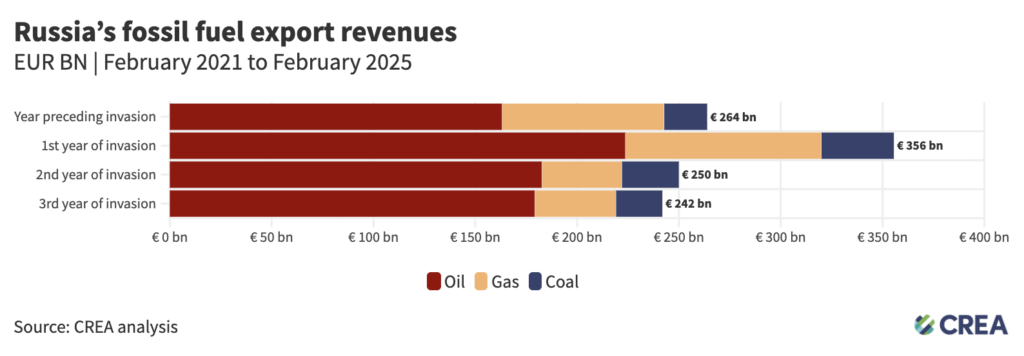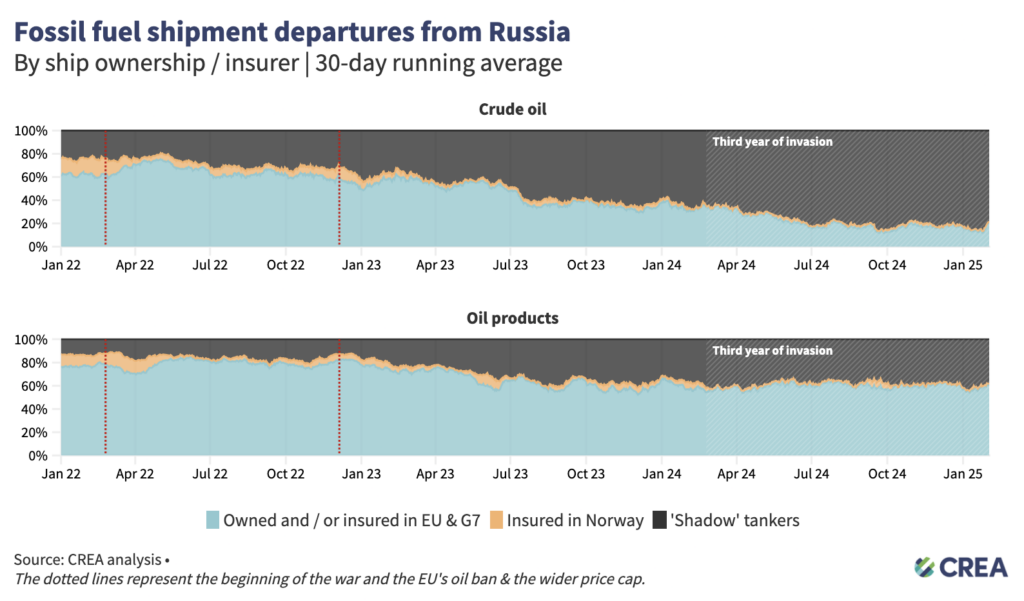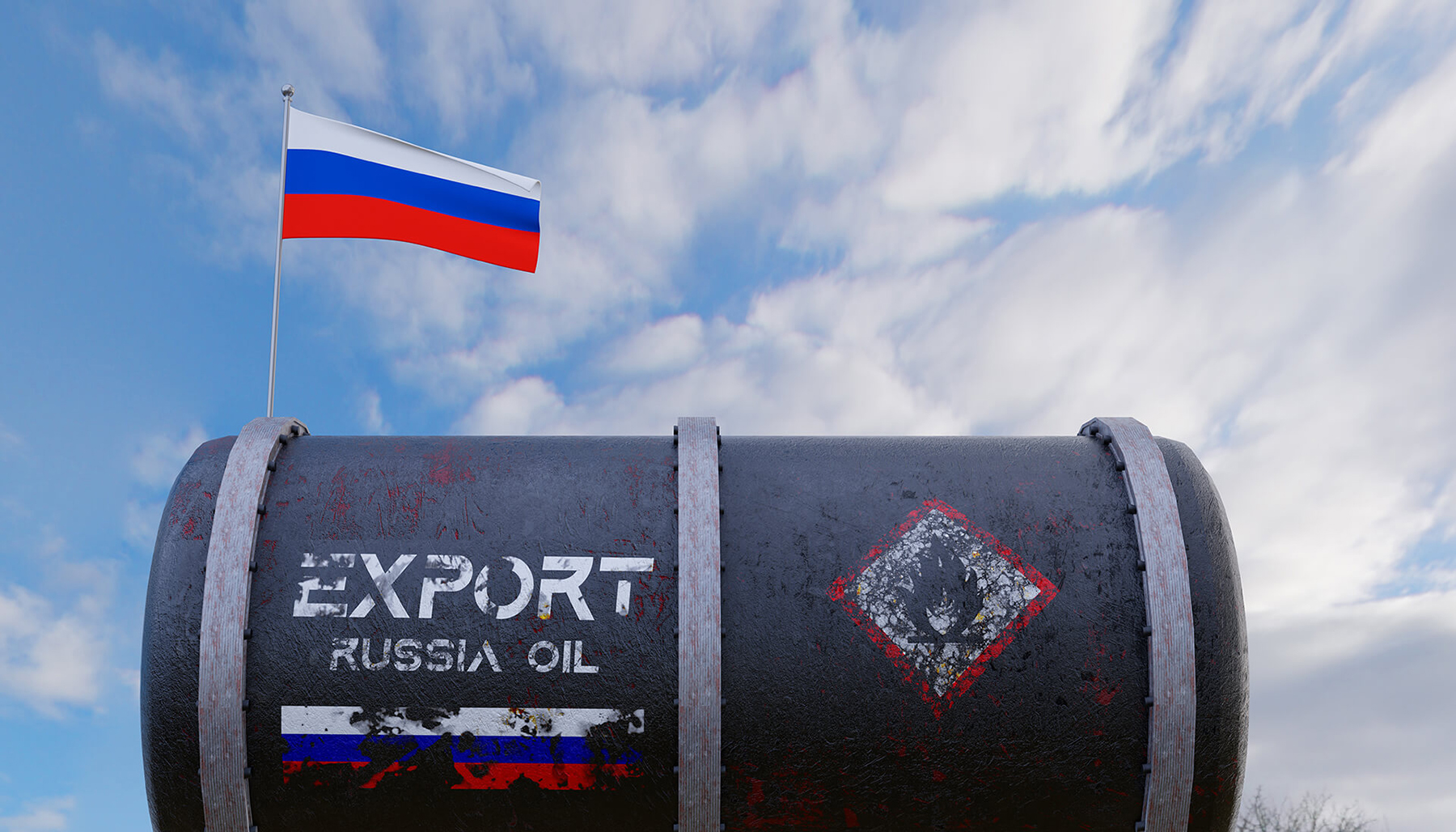The European Union is paying more for Russian fossil fuels than it provides in financial assistance to Ukraine, according to a new report marking the third anniversary of Russia's full-scale invasion.
Russia's fossil fuel exports have been a crucial source of revenue for the country, enabling it to fund its military operations in Ukraine. While sanctions have reduced Russia's fossil fuel revenues, the country has adapted by using "shadow" tankers and other methods to bypass restrictions.
Data from the Centre for Research on Energy and Clean Air (CREA) shows the EU purchased approximately €21.9 billion of Russian oil and gas in the third year of the war. This amount exceeds the €18.7 billion allocated to Ukraine in financial aid during 2024, based on figures from the Kiel Institute for the World Economy's tracker.
Despite claims of substantial support for Ukraine, only Scandinavian and Eastern European nations plus the Netherlands have committed significant GDP percentages to aid, while major powers like Germany, the US, and the UK allocate less than 0.2% annually—comparable to minor domestic subsidies—and Southern European countries contribute even less at around 0.1%.
“Through the lens of Western governments’ fiscal budgets, aid to Ukraine thus looks more like a minor political "pet project" rather than a major fiscal effort,” wrote the authors of the Ukraine Support Tracker.
"Purchasing Russian fossil fuels is, quite plainly, akin to sending financial aid to the Kremlin and enabling its invasion," said Vaibhav Raghunandan, CREA analyst and report co-author, according to the Guardian. He described it as "a practice that must stop immediately to secure not just Ukraine's future, but also Europe's energy security."
CREA reports that Russia earned €242 billion from global fossil fuel exports in the third year of the invasion, representing only a 3% year-on-year drop.

Since February 2022, Russia has accumulated approximately €847 billion from fossil fuel exports globally.
"Despite a host of sanctions, Russian revenues in the third year have dropped by a mere 8% compared to the year prior to the invasion of Ukraine," CREA states in its analysis.
Russia has circumvented sanctions by utilizing a "shadow fleet" of aging, underinsured tankers that transport approximately one-third of its fossil fuel export revenues.
According to CREA, Russia relied on 558 such vessels to transport 61% of its total seaborne oil exports, valued at €83 billion in the third year of the invasion.
This shadow fleet has significantly reduced the impact of price cap mechanisms, with sanctions on Russian Urals grade crude slashing revenues by only 6% (€2.6 billion) in the third year—70% less effective than the previous year.

In response, EU ambassadors approved new measures targeting this shadow fleet as part of the bloc's 16th sanctions package since the full-scale war began.
Russia has also successfully redirected exports to alternative markets. China (€78 billion), India (€49 billion), and Türkiye (€34 billion) now account for 74% of Russia's total fossil fuel revenues, with India and Türkiye increasing their imports by 8% and 6% respectively year-on-year.
European dependence on Russian liquefied natural gas (LNG) has actually increased, with EU member states spending €7 billion on Russian LNG in the third year, representing a 9% volume increase year-on-year.
The report identifies another sanctions loophole: G7+ countries imported €18 billion worth of oil products from refineries in India and Türkiye that processed Russian crude, generating an estimated €4 billion in tax revenues for Russia.
CREA researchers estimate Russian fossil fuel revenues could drop by more than €50 billion annually (20%) through strengthened sanctions and closing existing loopholes.
Their recommendations include addressing the "refining loophole" that allows Europe to purchase Russian crude processed in third countries, restricting gas flows through the Turkstream pipeline, and implementing stricter controls on liquefied natural gas (LNG).
“CREA’s report shows us possible pathways to weaken further Russia’s ability to turn fossil fuels into a source of funding for its war. Now more than ever is the time for Europe to completely eliminate any dependence on Russian fossil fuels while heavily investing in energy efficiency and renewable energy sources, at home and abroad,” said Thomas Pellerin-Carlin, a member of the European Parliament.
Related:
- “Ethical line is very thin”: Western firms pocket $ 6 billion selling old tankers to Russia’s shadow fleet despite sanctions
- EU 16th sanctions package against Russia targets shadow fleet, banks, media outlets, third-country trade
- Bloomberg: Rubio told Europeans that sanctions will remain in place for now
- Putin only seeks ceasefire to regroup forces, dodge sanctions – Zelenskyy

